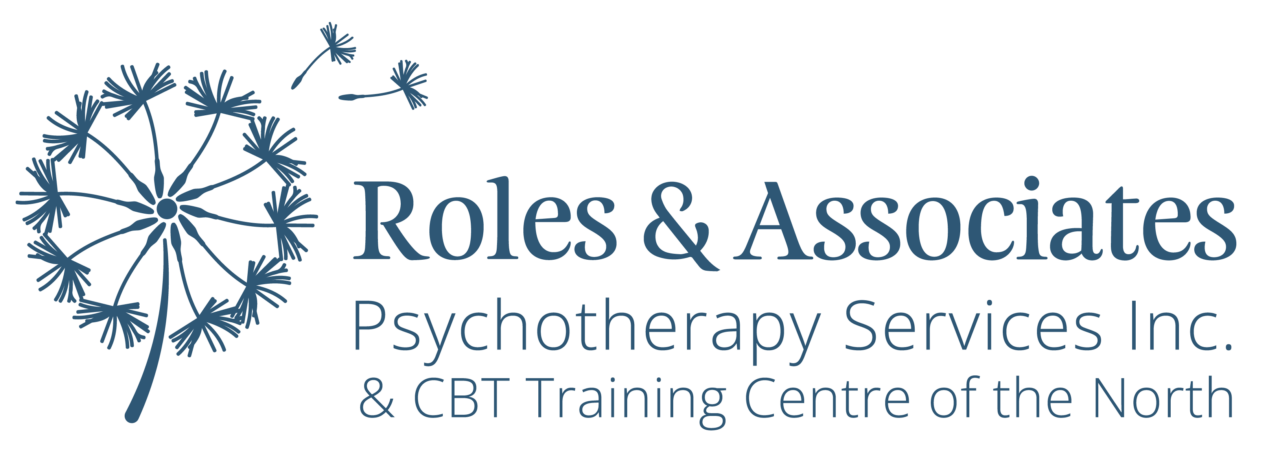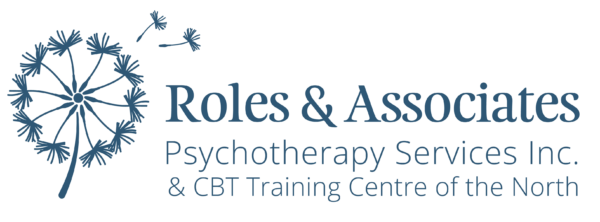Services We Offer
We offer individual, couples and group psychotherapy sessions, as well as therapy intensive sessions.

Individual, Couples, Relationship, & Family Psychotherapy
We help individuals and couples overcome issues and challenges they are facing by providing patients/clients with an approach to therapy that is individualized to their needs.

Group Psychotherapy
We provide group therapy to multiple patients/clients simultaneously to encourage support and help each other push past barriers.

Therapy Intensive Sessions
We provide intensive therapy sessions which are designed to provide longer and more frequent therapy sessions over a shorter time span for a deeper more rapid change.
What We Treat
Roles & Associates have been trained in a variety of cutting edge, therapeutic approaches to suit individual needs and help treat a variety of mental health disorders that affect the lives of individuals:
• Anxiety, OCD and panic disorders
• Eating disorders
• Trauma and PTSD
• Depression and grief
• Borderline personality disorder (BPD)
• Psychosis and bipolar disorder
• Addictions
• Inner ear and neck - Tinnitus, balance disturbances and cervicogenic vertigo (disequilibrium and vertigo)
• Pain
• Sleep and insomnia
• Marriage, couples and relationship therapy
• Children's therapy
• Infertility, pregnancy and postpartum mental health
• Sports psychology
• Autism Spectrum Disorder (ASD) Family Support
Global Appraisal of Individual Needs (GAIN) Assessment
The Global Appraisal of Individual Needs (GAIN) is an assessment instrument for clients entering into treatment programs or holistic healing centers. It is a two-hour interview that reviews physical health, mental and emotional health, substance usage, risk behaviours and disease prevention, legal and vocational history, and environmental and living situation. Each area examines past and present symptoms and concerns over the previous year. All Ontario treatment centers require a GAIN assessment in order to enter their programs and many healing centers prefer that a GAIN accompany their client’s application.
Do you require a GAIN assessment when applying for a treatment centre or Indigenous wellness centre? Our psychotherapist Jason Holtz, is certified in this form of testing and assessment and is available for virtual examinations.
To find out more information or to book your assessment, please contact us.
Phone: 705-929-1612 (ext 6.)
Email: [email protected]
Special populations and our experience
At Roles & Associates we acknowledge and respect all cultures. In order to meet the needs of our patients/clients, we strive to operate with cultural competency, sensitivity, and safety.
Indigenous Peoples
We have taken steps to educate ourselves through teachings and cultural safety courses to try to learn how to best provide mental health support to Indigenous People. We agree to refer to cultural supports and services, where appropriate, to supplement our practices. This learning is never done, and we will continue to find ways to recognize and correct the imbalances created out of historical and current racism.
2SLGBTQ+
At Roles & Associates, our team respects the names, pronouns, and identities of all gender expressions and sexualities. We acknowledge this population does not inherently have mental health challenges but instead experiences a higher number of mental health issues as a result of homophobia, biphobia, transphobia, etc. We incorporate elements of cognitive behavioural therapy and compassion focused therapy to treat gender dysphoria and help patients/clients work towards self-acceptance. We provide supportive psychotherapy to validate our clients' experiences, through the theoretical framework of Intersectionality.
Contact us to learn more about our services and to book a session with one of our trained clinicians.
Approaches to Therapy
Acceptance and commitment therapy (ACT) is an action-focused therapy approach where clients learn to accept their emotions and feelings rather than deny or avoid them. They also learn to accept their difficulties and needs as well as work on behavioural changes.
Brainspotting therapy™ (BSP) is a therapeutic process that uses specific points in the client’s visual field to access unprocessed trauma in the subcortical brain. BSP uses relevant eye positions, somatic awareness, focused mindfulness, and the therapist’s attunement to process and release the stored traumas which underlie a wide range of emotional and physical problems. It is a brain-body-based treatment that integrates well with other types of therapies. Often brainspotting is used in conjunction with bilateral sound - music or nature sounds that move back and forth between right and left ears, which balances activation of the right and left brain hemispheres and activates the parasympathetic, or calming, part of the nervous system. Brainspotting therapy was developed in 2003 by Dr. David Grand, an EMDR therapist and relational analyst.
Cognitive behavioural therapy (CBT) is a goal-oriented type of therapy that teaches the client how to first recognize and then change unhealthy ways of thinking and behaving. With the use of in-session practice and homework of skills to work on between sessions, this treatment is tailored to fit the client's goals and is a highly evidence-based collaborative psychotherapy.
Cognitive processing therapy (CPT) is a type of cognitive behavioural therapy (CBT) in which clients learn how to examine and change negative thoughts as well as beliefs related to their trauma. They identify thoughts and beliefs that stemmed from their traumatic event and work to modify them by creating a narrative that better fits their identity and goals in life.
Compassion focused therapy (CFT) is a type of psychotherapy that encourages individuals to be compassionate toward others as well as themselves. This type of therapy is primarily used for clients that struggle with self-criticism and self-contempt. CFT often includes exercises to practice mindfulness and appreciation. Sessions focus on examining the ways we talk to ourselves, where we might have first developed the particular tone and word choices used, and how we can make changes to how we speak to ourselves to increase self-compassion and appreciation.
Dialectical behavioural therapy (DBT) is a type of cognitive therapy that is very structured, where clients are taught skills in the four domains of mindfulness, interpersonal effectiveness, emotion regulation, and distress tolerance. This works to support clients in changing their behaviours, thoughts, and process their feelings in healthier ways. This type of therapy is effective for individuals who want to improve their ability in regulating their emotions and was developed for people with borderline personality disorder and suicidal impulses. DBT requires consistent attendance and adherence to homework that is developed by both the client and therapist working together as a team.
Exposure and response prevention (ERP) is a cognitive and behavioural type of therapy used to treat OCD, where the therapist first teaches the client ways to cope with their anxiety, such as methods of relaxation, how to address and how to stop intrusive and obsessive thoughts. Next, the therapist encourages the client to work on being exposed (safely) to their triggers, in order to learn how to cope with them while in the moment without resorting to compulsions. In time, clients report their symptoms subsiding as they gain control over their thoughts.
Eye movement desensitization and reprocessing (EMDR) is another structured approach to treating PTSD, as well as trauma. Clients will briefly access a traumatic memory during sessions while being guided and supported by the therapist who will support them to keep them grounded. This type of therapy is ideal for clients who prefer not to verbalize their traumatic experiences, which is necessary for PE, but who still want to work on trauma memories and related symptoms.
Inner child work is about tapping into a past version of oneself. This can be done on your own or as guided by a therapist. This type of work is often used as a tool for healing trauma, as it understands many of our disruptive distressing symptoms or behaviours stem from past experiences or unmet needs from before; often in childhood or adolescence. By tapping into how you were feeling during or after a trauma has occurred, you can learn how to revisit that time and version of yourself to bring comfort, and acknowledge what has happened.
This method helps clients build emotional resiliency, reduce avoidance to particular memories through exposure and helps people learn to self soothe. This can be done through an imaginal exposure, where the therapist leads the client back through memories in a safe setting and encourages them to hold themselves or say what they needed to hear. This can also be done by tapping into who the client was prior to adverse experiences or trauma to assist them in finding activities that bring them joy and help them connect to who they were before the incident. When a client learns to listen to the needs that their inner child has, they can begin to meet those needs and continue to expand this resiliency into other areas of their lives, while accepting all parts of themselves.
It is the nature of the mind to be made up of subpersonalities or parts. Subpersonalities are aspects of our personality that interact internally, similar to the ways in which people interact. These sub-personalities can consist of wounded parts and painful emotions such as anger and shame. Underlying the parts is a person’s core or true Self. The Self can and should lead the individual's internal system.
Internal Family Systems (IFS) therapy helps individuals achieve balance and harmony within their internal system and subpersonalities/parts.
Using IFS, the clinician will support individuals in developing their Self so it can be an effective leader in their internal system. When the Self is in the lead, the parts will provide input to the Self and help to elevate “wounds” so that individuals can find their natural balance. IFS is suitable for individuals, couples, and families, and it can effectively treat a variety of conditions such as depression, anxiety, panic, phobias, trauma, substance use, physical health conditions, and general well-being.
Meaning therapy belongs to the humanistic-existential tradition, which emphasizes the importance of addressing existential anxieties and the human needs for meaning and authenticity. According to Frankl (1986) who developed logotherapy aka meaning therapy, three factors characterize human existence: spirituality, freedom, and responsibility. In meaning therapy we focus on the human responsibility to live meaningfully and purposefully in every situation on a daily basis in order to become what they are meant to be.
Prolonged exposure (PE) therapy is a type of therapy used to treat post-traumatic stress disorder (PTSD). First, therapists teach clients coping skills that they can use throughout this process to engage in relaxation should they become too overwhelmed when discussing their traumatic experiences. PE introduces the client to concepts of how and why our brains react to trauma the way they do, why these reactions stick around, and how through the use of gradual exposure to one’s memories and in-life exposures, trauma symptoms will subside.
Psychodynamic psychotherapy is the oldest of the modern therapies and focuses on unconscious processes as they are manifested in the client's present behaviour.
The goals of psychodynamic therapy are client self-awareness and understanding of the influence of their past on their present behaviour. Brief psychodynamic psychotherapy enables the client to examine unresolved conflicts and symptoms that arise from past relationships and manifest themselves in their day to day life as current struggles.
Several different approaches to brief psychodynamic psychotherapy have evolved from psychoanalytic theory and have been used to treat many different mental health presentations.
Excessive self-control as in symptoms of some eating disorders, perfectionism and obsessive-compulsive personality disorder requires a treatment that works to reduce the need to engage in self-controlling behaviours and cognitions. RODBT works to help the individual to increase impulsivity and reduce worry or anxiety surrounding perfectionism.
As the name suggests, solution-focused brief therapy (SFBT) is a short-term goal-focused therapeutic approach largely geared towards discussing solutions. There is a brief need for discussion around the problem to examine what it is and explore potential opportunities to address it, but that is not the primary focus of this approach. This approach is rooted in the here and now, with an identified future-oriented goal involving lessening the negative impacts the identified problem has in your life.
The goal of SFBT is to collaboratively identify realistic solutions in as brief of a timeline as possible. SFBT is a versatile approach that can be used in areas such as individual, couples, or family therapy addressing anywhere from high stress life events to normal life stressors.
Contact Form
To request an appointment, please fill out your information using our secure form below and we will be in touch shortly. For more information, please contact us by phone or email: 705-929-1612 ext.6, [email protected].

